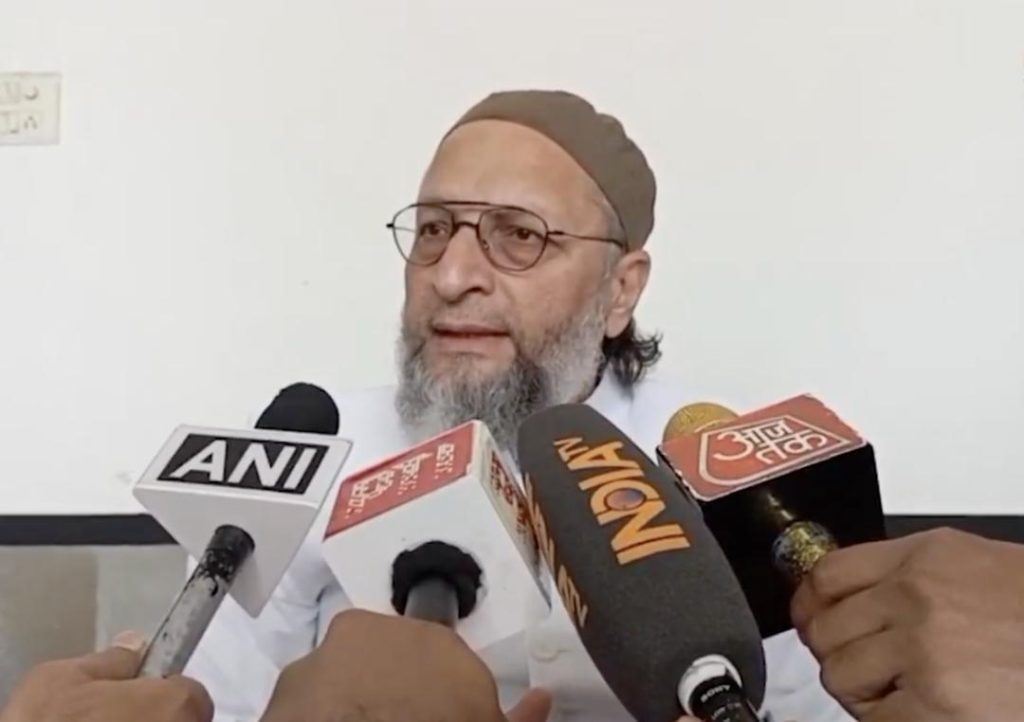
Arrest 4-5 Ministers & Govt is Gone: Owaisi on PM-CM Removal Bills
The recent Constitution (130th) Amendment Bill, which proposes to amend the Constitution to provide for the removal of the Prime Minister, Chief Ministers, and ministers arrested for at least 30 days, has sparked a heated debate in the country. AIMIM chief Asaduddin Owaisi, while expressing his concerns over the proposed bill, made a bold statement that has left many wondering. According to Owaisi, “Just arrest four-five ministers, and government is gone.”
Owaisi’s statement may seem dramatic, but it highlights the potential risks and implications of the proposed bill. The bill, which is currently being debated in Parliament, seeks to give the President the power to remove the Prime Minister, Chief Ministers, and ministers from office if they are arrested for at least 30 days. While the intention behind the bill may be to prevent corruption and ensure accountability, Owaisi and many others are concerned that it may have unintended consequences.
One of the primary concerns is that the bill may create a culture of fear and intimidation. If the President has the power to remove the Prime Minister or Chief Ministers simply because they have been arrested, it may lead to a situation where those in power will go to great lengths to avoid being arrested, even if they are guilty of wrongdoing. This could lead to a culture of corruption and cronyism, where those with power and influence use their positions to avoid accountability.
Another concern is that the bill may undermine the independence of the judiciary. The Constitution (130th) Amendment Bill seeks to give the President the power to remove the Prime Minister, Chief Ministers, and ministers, but it does not provide for any checks and balances to ensure that this power is used responsibly. This could lead to a situation where the President uses their power to remove those in office for political reasons, rather than for legitimate reasons such as corruption or abuse of power.
Owaisi also expressed his concern that the bill may create a precedent for the removal of elected representatives from office. If the President has the power to remove the Prime Minister or Chief Ministers simply because they have been arrested, it may lead to a situation where the President uses this power to remove other elected representatives from office as well. This could lead to a situation where the government is no longer accountable to the people, but rather to the President.
The Constitution (130th) Amendment Bill is not the first attempt to reform the Constitution to increase accountability and transparency. In recent years, there have been several attempts to introduce reforms to the Constitution, including the introduction of the National Register of Citizens (NRC) and the Citizenship Amendment Act (CAA). However, these reforms have been met with widespread opposition and criticism, with many arguing that they are unconstitutional and discriminatory.
The controversy surrounding the Constitution (130th) Amendment Bill is just the latest example of the ongoing debate over the role of the President in Indian democracy. In recent years, there have been several attempts to increase the powers of the President, including the introduction of the National Commission for Backward Classes (NCBC) and the National Commission for Scheduled Castes (NCSC). However, these attempts have been met with widespread criticism, with many arguing that they are unconstitutional and undermine the principles of federalism and democracy.
In conclusion, the Constitution (130th) Amendment Bill is a highly controversial and contentious issue that has sparked a heated debate in the country. While the intention behind the bill may be to increase accountability and transparency, it may have unintended consequences that could undermine the principles of democracy and federalism. As Owaisi has pointed out, the bill may create a culture of fear and intimidation, undermine the independence of the judiciary, and set a precedent for the removal of elected representatives from office. Therefore, it is essential that the government and the opposition parties carefully consider the implications of the bill and work together to find a solution that balances the need for accountability with the need to protect the principles of democracy and federalism.






